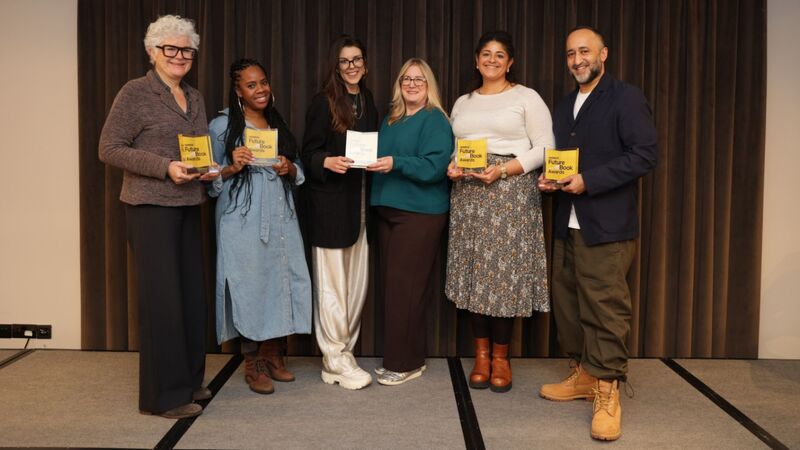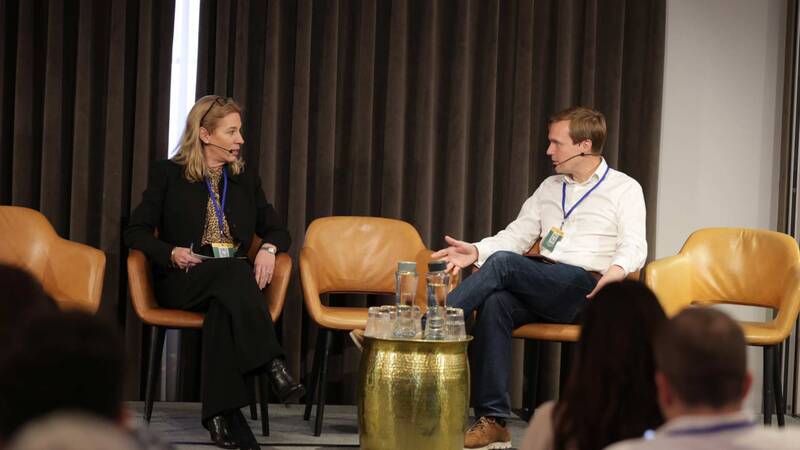You are viewing your 1 free article this month. Login to read more articles.
Auto-narration 'can help close gap' between e-books and audiobooks
Auto-narrated audiobooks will not replace human narration but will help "elevate" text-heavy books and try and eliminate the gap between e-books and accompanying audiobooks, says Ani Attamian, head of publishing partnerships for Europe, the Middle East and Africa at Google.
Attamian (pictured) was speaking on the panel "On the Up and Up: Innovation in Audio Formats" at The Bookseller's FutureBook conference on 19th November and stressed she thought it was "dangerous" not to at least experiment with auto-narration.
She told the audience that Google launched its auto-narration service in beta just over a year ago, after finding out there was a 95% gap in its catalogue of e-books lacking accompanying audiobooks. "We were really shocked by that number," she said. "This is not meant to be something that replaces human narration...this solution here is about how do we help elevate all these books that are very text heavy and don’t have accompanying audio."
Attamian said Google's auto-narration takes under two hours to convert a book, and has more than 20 narrators, with male and female voices and accent variations. It is currently only in the English language but will launch in Spanish next year. "Because it’s a low barrier to entry you can go through the conversion process and then decide later 'actually this book does warrant human narration'. But you’ve been able to test without adding a lot of resources. It’s free at the moment in beta and there will be a very low nominal fee in the future mainly to prevent fraud.
"It’s a good testing ground rather than doing nothing, which I think is a dangerous place to be," she said, explaining the need to convert as many e-books to audio as possible for audio users as well as improve accessibility for those with visual impairments. "Doing nothing is not going to solve the problem. There isn’t one solution. I think it’s really a mix of all these things and it depends on the content you have as a publisher as to what you use."
Kelli Fairbrother, c.e.o. and co-founder of xigxag, agreed there needs to be more innovation in the audio space, and said the dominant one per month subscription model is "not working for a good portion of the population". She said her platform sees on average 1.92 books per customer per month. She also argued that the reason popular cookery books have not made the transition to audio is because of the current "limitations" to the format, and claimed xigxag helps to make navigation "much more like reading, skipping back and forth by paragraph and by chapter and you don’t get dropped in the middle of a sentence".
"If you can match the text in a high quality way with the audio and create these richer experiences, then you can enrich the audiobook experience," she said.
Govind Balakrishnan, c.e.o. of Curio, also argued that audio content is just "half of the equation" and the product and experience is equally as important to engage listeners. "They have to go hand in hand, but you cannot disentangle the two," he said.


















